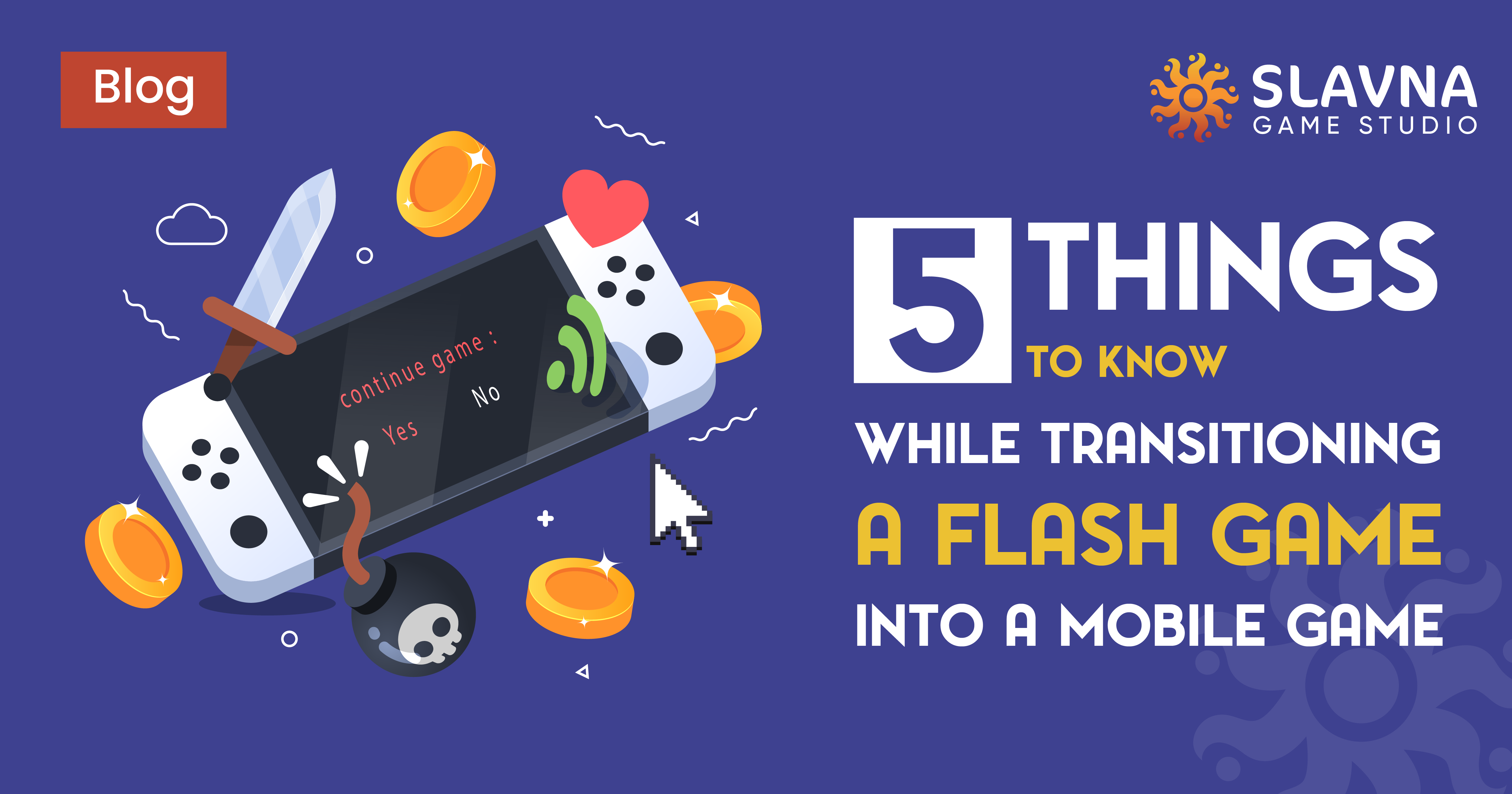There are several factors and considerations that game design companies must keep in mind when transitioning from Flash to mobile phones. Here are five things you need to know when attempting to do the same.
5 Things You Need to Know While transitioning from Flash Game into a Mobile Game
Where do you do most of your gaming? Over the past few years, there has been an increasing diversion towards mobile phone gaming. The number of mobile game companies has been increasing over the years, and several game development studios have become multi-million-dollar enterprises. Mobile phone gaming has taken the form of a sport, with game design companies organizing global competitions with million-dollar giveaways to the winners. The number of mobile phone gamers has been increasing by leaps and bounds as a response to such publicity.
With an eye on a still untapped market of prospective mobile phone gamers, game development studios have begun transitioning their current web and mobile games, based on Flash, to mobile games based on frameworks such as HTML5. While the process of conversion from a Flash game to a mobile game can be long and arduous, the dividend can be equally large.
There are several factors and considerations that game design companies must keep in mind when transitioning games from Flash to mobile phones. Here are five things you need to know when attempting to do the same.
1. Support for Flash:
Flash has been the bedrock of web-based content for over twenty years now. Since the ‘90s, Flash has been the basic method of sharing videos or animation. Most web browsers have had support for Flash built-in for at least a decade now. However, despite regular updates, age has caught up with the Flash Player as well. Competitors have emerged, and Flash has not been able to keep up with the features they have introduced. As a result, Adobe, which took over Flash in the 2000s, has decided to end support for Flash from 31 December 2020. Hence, any mobile game development company must keep in mind that support for Flash ends soon and take steps to convert to other frameworks fast.
2. Outdated Content:
The reason that Adobe took the decision to end Flash is also very evident. As a mobile game development company, you would wish to release your game to the widest audience, including users of Apple devices. However, Apple devices do not support Flash content at all. While a few Android devices do support content based on Flash, it is very evident that Google also prefers HTML5 since it stopped using Flash by default a few years ago. These are clear indications that Flash is way past its use-by date. Game design studios must keep this in mind while developing games, and keep a distance from Flash, especially given the fact that content designed in Flash is likely to be outdated soon.
3. Security Risks:
Several mobile phone games require access to the personal data of gamers. In this regard, Flash can be extremely prone to risk. Most of the mobile-based security vulnerabilities of the world use Flash to gain access to the network and either compromise it or steal data from it. This only makes it more prudent for mobile game companies to choose to migrate from Flash to a framework such as HTML5. HTML5 is responsible for an exceptionally low number of infiltrations every year, especially if compared to Flash.
4. Increase in Conversion Demand:
Flash-based games might stay valid and running on computers and mobile devices for at least a few more years. In older mobile phone models, Flash-based content will be usable as long as the phone itself is. As a result, many mobile game companies do not currently feel rushed to convert their games to HTML5. However, as the number of devices completely incompatible with Flash increases in the future, so will the demand for conversion into compatible frameworks. As a result, the costs related to conversion are likely to increase very soon. This might just be the best time to convert for any game development studio before the prices go through the roof.
5. Conversion Complexities:
Conversion from Flash to HTML5 is not an easy process and can, in fact, be very arduous for the developer as well. It is, hence, important that game development studios that choose to convert keep a considerable time blocked for the conversion process. As with most other development processes, if your mobile game development company wants the game to run almost the same way or better than it did in its Flash form, it needs to give time for conversion, testing and debugging.
Conversion from Flash game to mobile game is not just useful but important for any mobile game development company. With Flash support ending soon, the mobile game companies must start taking steps soon for the conversion, not just to stay relevant but to increase their consumer base.

